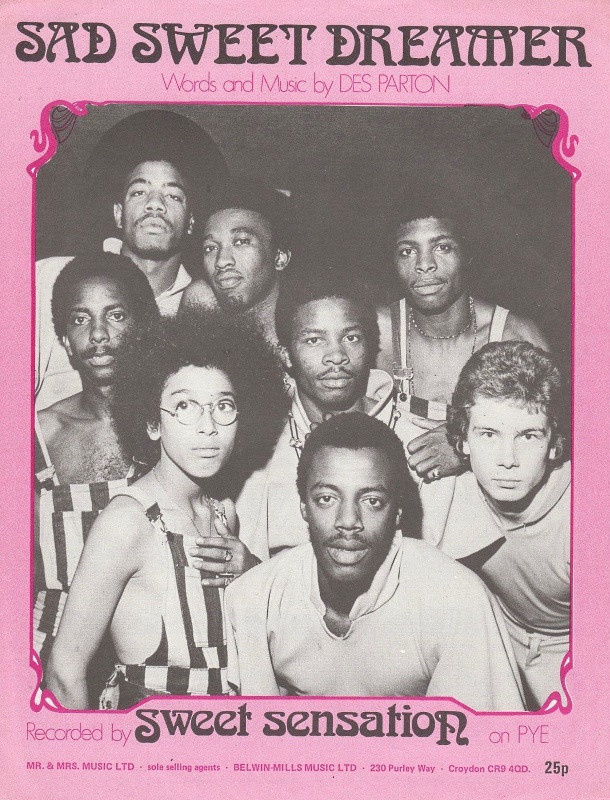And so we reach, and pass, the midway point of the 1970s. But not with a song that faces forward, pointing the way into a bright new sonic future. Oh no, this next hit draws heavily, very heavily, a little too heavily, on what went before…
Lonely This Christmas, by Mud (their 2nd of three #1s)
4 weeks, from 15th December 1974 – 12th January 1975
Bum-bum-bum-bum… Finally, Christmas in the real world and Christmas in my countdown coincide. Bum-bum-bum-bum… Of the four explicitly Christmas-themed #1s so far, this is the first I’ve posted in December. And what an appropriate song for this sad, socially distant festive season: It’ll be lonely this Christmas, Without you to hold, It’ll be lonely this Christmas, Lonely and cold…
This time last year, Slade were giving us pure Xmas escapism. This year, though, Mud are wallowing in misery. There’s no other word: it’s a miserable song. Obviously, you expect a record called ‘Lonely This Christmas’ to be sad, bittersweet, maybe even a little maudlin. But not this bad. I really don’t see the appeal of listening to this over a glass of mulled wine. The only things I see, Are emptiness, And loneliness, And an unlit Christmas tree…
It is possible to write a good-but-sad Christmas song. ‘Last Christmas’ would be the classic example. Then there’s Elvis’s ‘Blue Christmas’, which admittedly is more sexy than sad. And Elvis is a relevant comparison here, as Mud’s lead singer Les Gray is serving his best impersonation of The King in the vocals (and the famous TOTP performance below). He goes full ‘Are You Lonesome Tonight?’ when we come to the spoken word section: Remember last year, When you and I were here…? Just why someone from Carshalton had to put on such a strong American accent is unclear, though I guess it would have taken away from the Elvis vibes.
I’ve heard it said that this song might have proven more popular than usual in 2020, and would maybe head higher up the streaming charts thanks to the pandemic. But it appears people are simply doubling down on Mariah Carey and Brenda Lee, and who can blame them? If your Christmas actually is miserable, and lonely, then you don’t need reminding through song. As for me, I’ve always included this in my festive playlists out of habit, because it was a huge seventies Christmas #1. I’m deleting it, though, right now. (Or at least replacing it with this pop-punk cover version.)
The big question here is: what happened to the band that recorded ‘Tiger Feet’? Where did they go? Can they come back? ‘Lonely This Christmas’ is everything Mud’s first, glorious chart-topper isn’t. If only they could have recorded a Christmas hit with the energy and enthusiasm of ‘Tiger Feet’… If only. By the end, when we get a ‘Jingle Bells’ coda, and a Merry Christmas darlin’, Wherever you are… I’m done. That’s plenty. After an autumn of disco, glam rock is really starting to show its age…
Still, Mud aren’t done. Not quite yet. I’ll hold off on the bio for now. Coming up next, in my final post before Christmas, we’ll visit a festive classic that really should have been a #1…



















